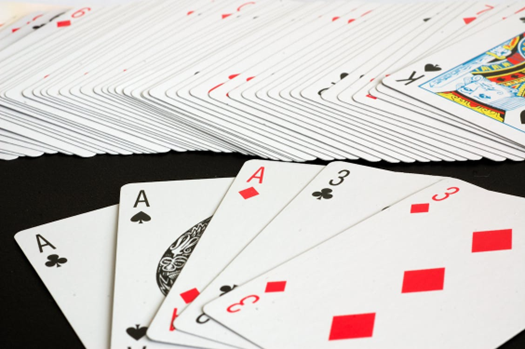In cafés, on buses, and at tournament tables, a significant shift is underway. Card players are no longer only shuffling decks; they are scrolling, tapping, and refining strategies in real time. Mobile apps that started as simple card lists have evolved into comprehensive toolkits that help players build decks, trade cards, track prices, and register for events.
In this article, you will discover how these tools have grown, why players are using them to practice anywhere, how they are bringing new audiences into the hobby, and what upcoming hybrid events and technology could mean for your own play.
The Growth of Mobile Deckbuilding Tools
Deckbuilding has changed the most. Today’s apps do far more than store card lists. Platforms like MTG Companion (the official Magic: The Gathering app) and Untap.in feature large card databases, life counters, match pairings, and links to digital play. Players also want reliable information about online gaming spaces. Independent review sites, such as 777 Casino, provide details on these platforms, giving card gamers a transparent and trustworthy context before deciding where and how to play.
Mobile tools also let you manage collections, track trades, and practice with simulated draws. Being able to adjust strategies on a lunch break or check a card’s value while traveling keeps you active and engaged between events.
Trading, Tracking, and Playing on the Go
Having all these features in one place has changed how players take part in the hobby. Before, you might use one site for card prices, another for decklists, and a third for tournament sign-ups. Now you can trade, track, and playtest on the same device.
This is quicker for competitive players but also helpful for casual fans who want to stay connected without spending hours preparing. It also keeps local groups together. Even if weekly meet-ups are smaller, digital tools help people stay in touch and keep playing.
Accessibility and Inclusivity: Opening the Door for More Players

Mobile access removes barriers that once limited card gaming. Players far from hobby shops or tournaments can join online leagues, participate in weekly challenges, and follow live events all from the comfort of their own homes. Apps such as MTG Arena and Untap.in host frequent online events, providing people in smaller towns with the same opportunities as those in major cities.
Many platforms also include language options, as well as built-in tutorials and guides for building decks on a budget. These features help newcomers learn at their own pace, try affordable strategies, and connect with mentors in community chats. They also let experienced players meet people from other regions and practice with a broader pool of opponents.
Seeing players from different countries share tips in the same chat demonstrates how mobile tools are creating inclusive spaces and making card gaming more accessible to everyone.
Hybrid Play: From Mobile to Tabletop
Hybrid play is becoming a standard part of card gaming. You can build and test a deck on your phone, practice against AI or other users online, and then bring that list to a physical tournament. This approach saves time, helps refine strategies before spending money on cards, and gives you a chance to gauge your deck’s performance against a wider range of opponents.
Magic: The Gathering conducts digital qualifiers through MTG Arena, with winners advancing to live events such as the Pro Tour or MagicCon finals. Players can prepare online, earn their spot, and then compete in person for larger prizes. For anyone who lives far from major venues, hybrid play is a practical way to gain tournament experience while still enjoying the atmosphere of face-to-face competition.
Looking Ahead: What’s Next for Mobile Card Gaming?
Mobile technology keeps developing. Apps are adding stronger links to live events and better data features. Some promotional apps already allow you to scan cards to display additional information. These developments could make practice sessions more interactive and tabletop play more dynamic. Whatever new tools arrive, the core of card gaming, which are strategy, creativity, and community, stays the same.
FAQ Section
1. Why are mobile apps essential for card game players?
They let you build decks, manage collections, and join tournaments anywhere, making the hobby more accessible and convenient.
2. Are mobile card gaming tools only for competitive players?
No. Casual players benefit from tutorials, budget decks, and simpler trading just as much as competitive ones.
3. How can players choose trustworthy platforms?
Independent review hubs (like the one linked above) provide clear information and rankings, helping you pick reliable apps and gaming spaces.
4. Will mobile replace physical card play?
Unlikely. Most players enjoy both. Hybrid experiences that combine digital and tabletop elements are becoming the norm.









— Comments 0
, Reactions 1
Be the first to comment